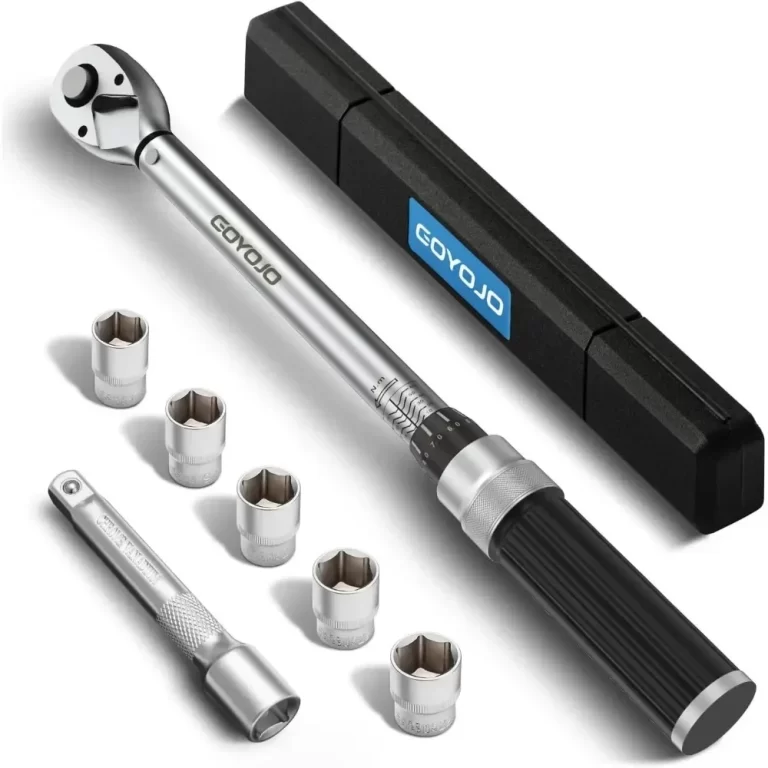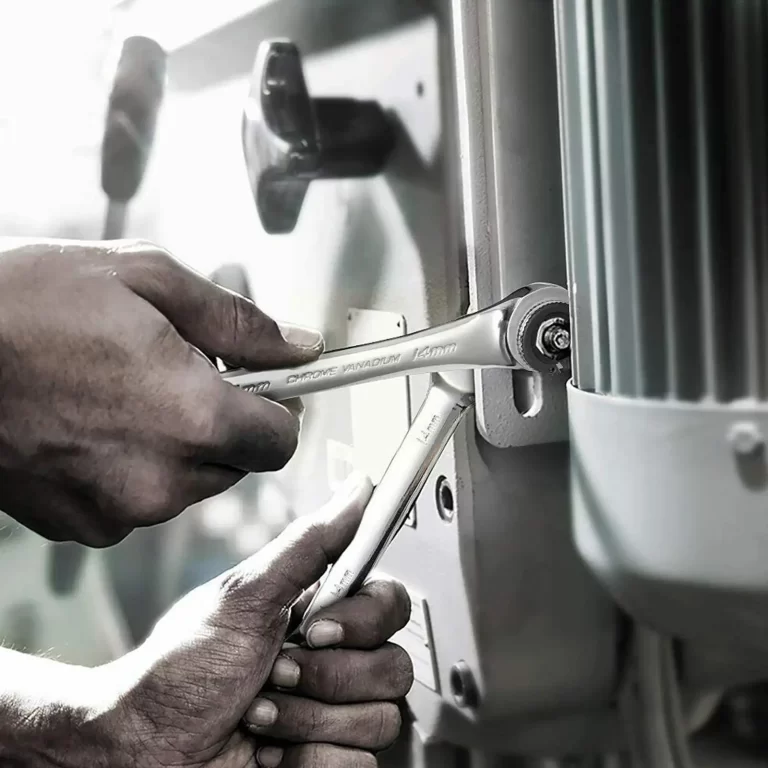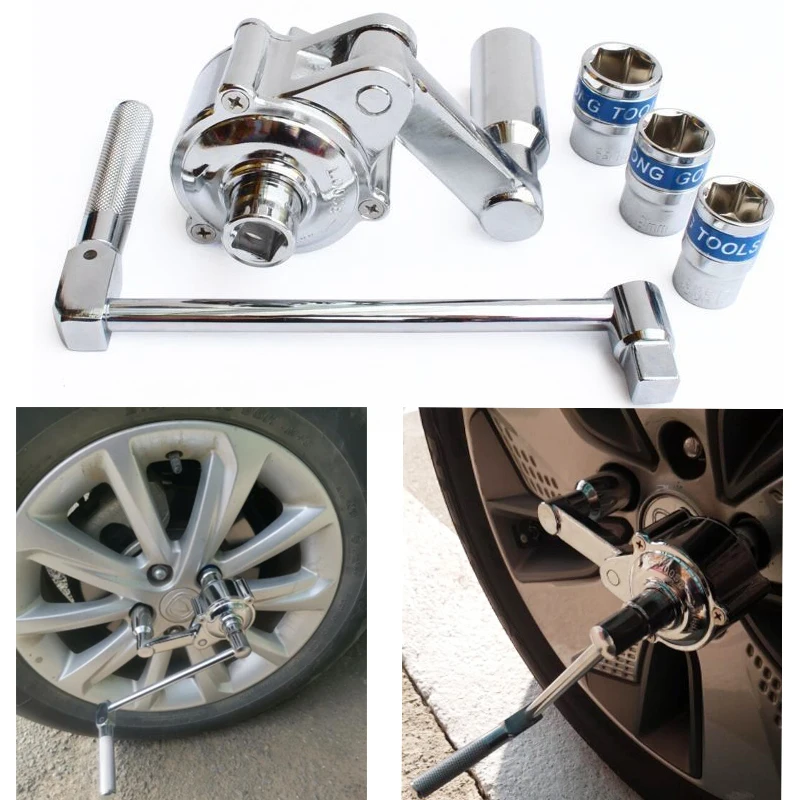
What Is a Torque Multiplier Wrench and Why You Need One
When working with heavy-duty machinery or industrial equipment, precision and power are essential. One tool that delivers both is the torque multiplier wrench. This powerful device enables users to achieve high torque values without exerting excessive physical effort. As a result, it has become indispensable in automotive, aerospace, construction, and manufacturing industries. The torque multiplier wrench works by multiplying the input force through a gear train system. Therefore, even a modest hand force can generate hundreds or thousands of foot-pounds of torque.
Moreover, this tool significantly reduces operator fatigue. In addition, it enhances safety by minimizing the risk of injury from overexertion. Because of its mechanical advantage, the torque multiplier wrench is ideal for tightening large bolts and nuts. Furthermore, it ensures consistent and accurate torque application. As such, understanding its function, benefits, and proper use is crucial.
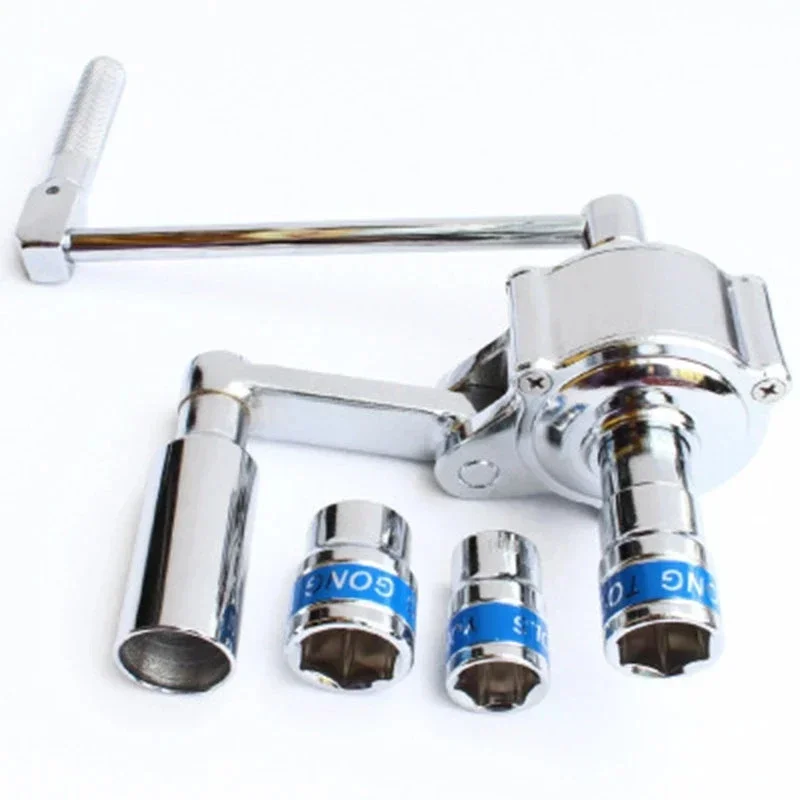 What is a Torque Multiplier Wrench?
What is a Torque Multiplier Wrench?
Definition and Purpose
A torque multiplier wrench is a mechanical tool that increases torque output. It helps users apply high levels of torque with less physical effort. This tool is essential for tightening or loosening bolts and nuts that require significant force. It is commonly used in industries like automotive, construction, and manufacturing. By reducing strain, it enhances precision and ensures safety during operations.
Key Components of a Torque Multiplier
A torque multiplier wrench consists of several essential parts:
- Input Drive: The part where torque is applied using a standard wrench or handle.
- Gear System: A series of planetary gears that magnify the applied torque.
- Reaction Arm: A component that holds the tool steady and absorbs reaction force.
- Output Drive: The part that delivers the multiplied torque to the fastener.
These components work together to amplify torque efficiently and ensure accurate application.
How Does a Torque Multiplier Wrench Work?
The Mechanism Behind Torque Multiplication
A torque multiplier wrench uses a simple mechanical principle to increase torque. The input handle applies force to the input drive. This force is transferred to a specialized gear system inside the wrench. The gear system, usually planetary gears, multiplies this force to produce greater output torque. The reaction arm absorbs the counterforce to keep the tool steady during operation. This mechanism ensures that even a small input effort generates a high torque output.
Gear Ratios and Their Role
The gear ratio determines how much the wrench amplifies the torque. For example, a 5:1 gear ratio means the output torque is five times the input torque. Different torque multiplier wrenches have varying gear ratios to suit specific needs. Higher gear ratios provide greater torque but may require more input rotations. Understanding gear ratios helps users select the right tool for their application and ensures efficient operation while using a torque multiplier wrench.
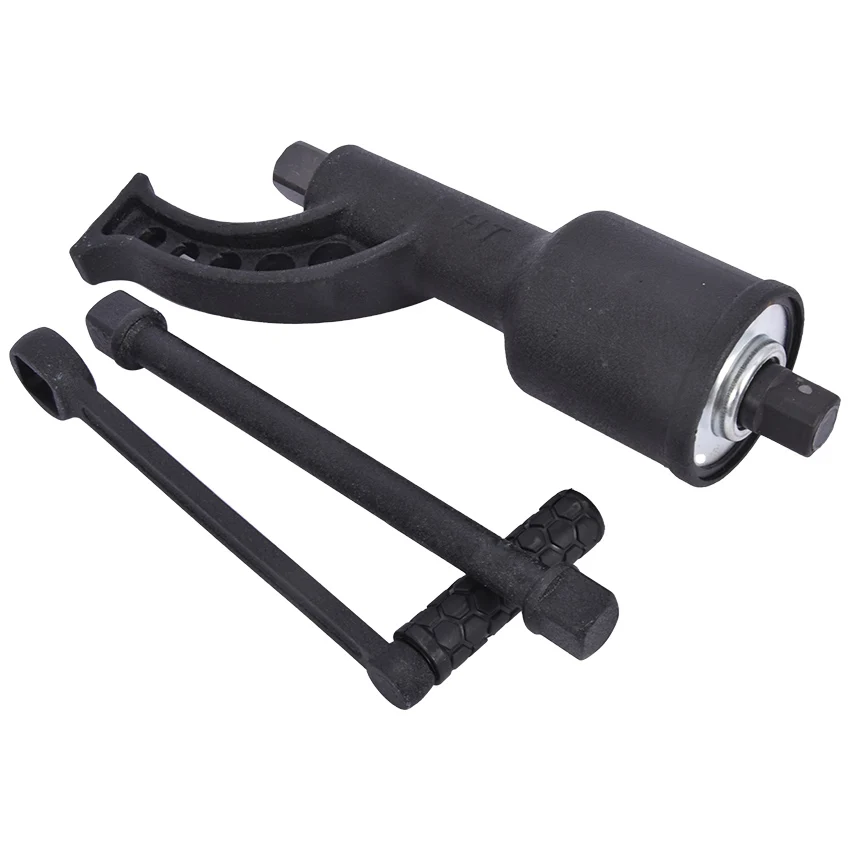 Benefits of Using a Torque Multiplier Wrench
Benefits of Using a Torque Multiplier Wrench
Increased Efficiency and Precision
Using a torque multiplier wrench greatly boosts efficiency and precision. It multiplies torque effortlessly, requiring less manual strength. This allows users to work faster and more efficiently, especially on high-torque bolts. The tool’s design ensures accurate torque application, reducing the margin of error. Precision is crucial in industries like automotive and manufacturing, where inconsistent torque can cause equipment failure. By delivering consistent torque, it minimizes mistakes and improves overall work quality.
Enhanced Safety and Reduced Strain
A torque multiplier wrench significantly enhances safety during operations. It reduces the physical strain on users, making work less tiring. Loosening or tightening stubborn bolts can often lead to injury or fatigue, but this tool eliminates that risk. The reaction arm stabilizes the tool, preventing sudden slips or movement. Moreover, it allows workers to handle high-torque tasks without overexertion. This makes it ideal for long shifts or demanding operations, ensuring both safety and comfort for users.
Applications of Torque Multiplier Wrenches
Torque multiplier wrenches play a vital role in various industries and specific maintenance tasks. Their ability to amplify torque makes them indispensable for applications requiring high precision and force.
Industries That Rely on Torque Multipliers
- Automotive Industry: Automotive repair shops commonly use these wrenches for tightening engine bolts and nuts. They ensure accurate torque, which is crucial for engine performance and longevity.
- Construction and Infrastructure: These tools are vital on construction sites for assembling heavy machinery and structures. They enable workers to secure large bolts used in beams, cranes, and hydraulic systems.
- Manufacturing Plants: Manufacturing lines use torque multipliers for assembling machinery and components that demand consistent torque.
- Energy Sector: In oil rigs, wind turbines, and power plants, these tools are essential for maintaining large equipment and ensuring safety.
- Aerospace Industry: Precision is essential in aerospace work. Torque multipliers secure bolts in airplanes and spacecraft.
Common Use Cases in Maintenance and Repairs
- Tightening Stubborn Bolts: Torque multipliers easily handle stuck or rusted bolts, saving time and effort.
- Heavy-Duty Fasteners: These tools are ideal for tasks involving oversized bolts requiring immense force.
- Torque Calibration: They ensure bolts are tightened to precise specifications, crucial for safety and performance.
- Machinery Overhauls: During heavy machinery disassembly or reassembly, torque multipliers simplify tasks and prevent errors.
- Pipeline Maintenance: These tools help in maintaining pipelines where high-torque applications are necessary.
Overall, torque multiplier wrenches are indispensable for industries that demand precision, safety, and efficiency in fastening tasks.
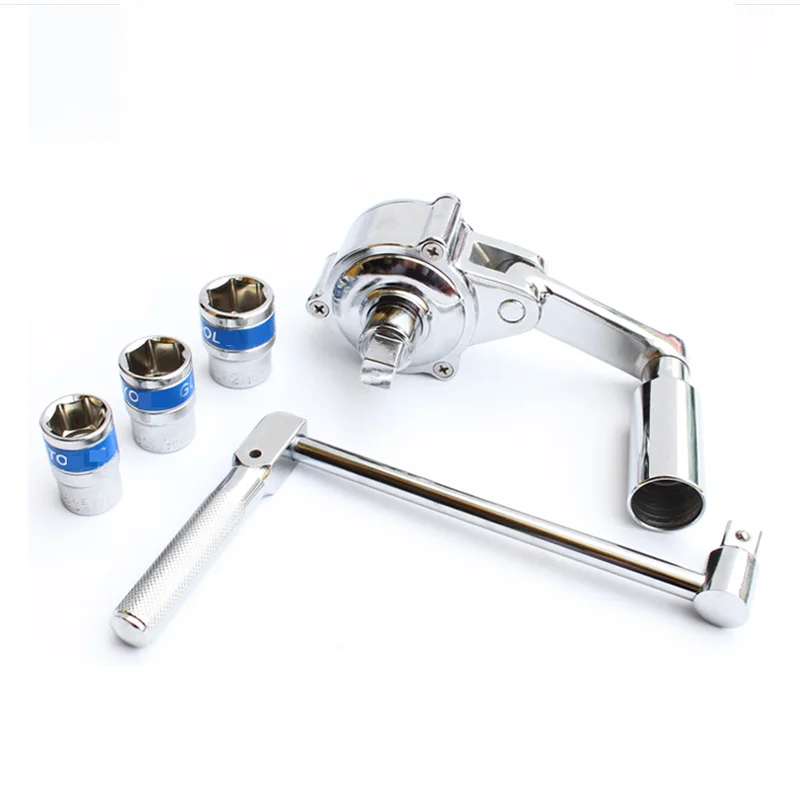 Choosing the Right Torque Multiplier Wrench
Choosing the Right Torque Multiplier Wrench
Selecting the right torque multiplier wrench ensures efficiency, safety, and precision. Different tools cater to different needs. Assess your application requirements before making a decision.
Factors to Consider When Selecting a Tool
- Torque Capacity: Check the maximum torque output the tool can deliver.
- Ensure it meets your specific job requirements.
- Choose higher torque capacity for heavy-duty applications.
- Gear Ratio: Determine the tool’s torque amplification ratio.
- Higher ratios offer greater torque but may require more input effort.
- Select a ratio that suits your task efficiently.
- Build Quality: Opt for strong and durable materials like steel or aluminum.
- High-quality tools last longer under intense usage.
- Avoid tools with weak or flimsy construction.
- Size and Weight: Consider the tool’s portability.
- Compact designs are better for tight spaces.
- Lightweight tools reduce fatigue during prolonged use.
- Safety Features: Look for safety-enhancing components.
- A sturdy reaction arm stabilizes the tool.
- Anti-slip grips help prevent accidents.
- Compatibility: Ensure the tool fits your existing equipment.
- Check compatibility with your standard wrenches and drives.
- Misaligned systems can cause inefficiencies.
- Price and Warranty: Balance affordability with reliability.
- Compare prices for comparable tools.
- Prefer tools with warranty protection for added assurance.
Comparing Manual vs. Powered Torque Multipliers
- Manual Torque Multipliers:
- Operate without electricity or batteries.
- Ideal for quick, on-the-go applications with limited space.
- Suitable for occasional or smaller tasks.
- Cost-effective and budget-friendly.
- Powered Torque Multipliers:
- Use motors, making them faster and more efficient.
- Excellent for repetitive, heavy-duty applications.
- Handle higher torque outputs with greater ease.
- Generally more expensive but save time and effort.
Tip for Selection:
- Manual tools work well for minor repairs and low-frequency tasks.
- Powered multipliers are better for industrial use and high-volume operations.
By carefully evaluating your needs, you can choose the perfect torque multiplier wrench. A precise selection boosts productivity and ensures safe, effective operations.
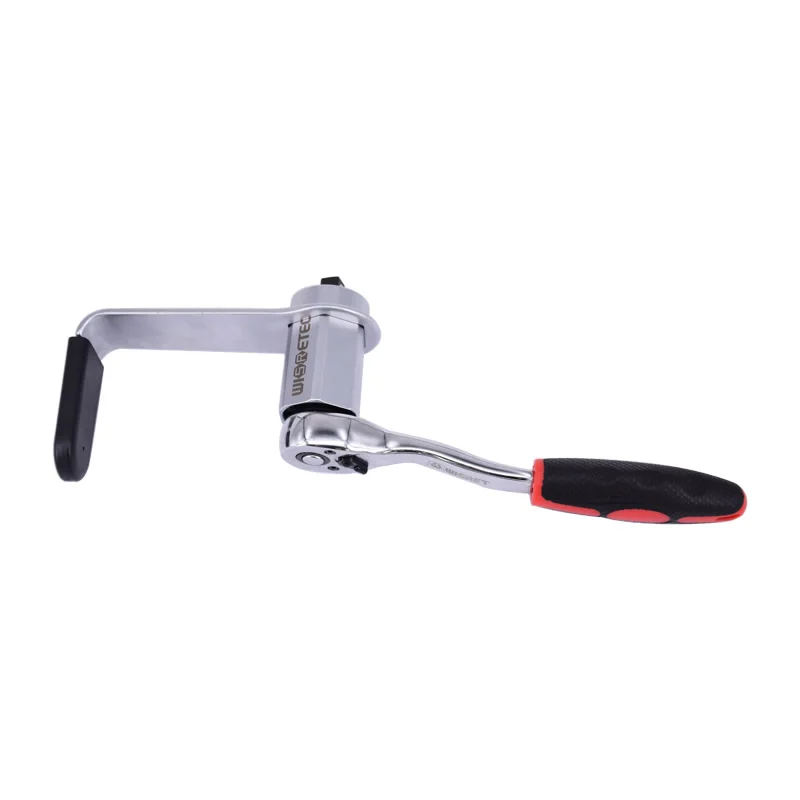 Maintenance Tips for Torque Multiplier Wrenches
Maintenance Tips for Torque Multiplier Wrenches
Proper maintenance ensures your torque multiplier wrench lasts longer and performs optimally.
Cleaning and Storage Guidelines
- Clean After Every Use:
- Wipe the wrench with a clean, dry cloth to remove dirt and grease.
- Use a mild detergent if needed for stubborn stains on the tool.
- Inspect for Wear and Tear:
- Check for cracks, dents, or other signs of damage routinely.
- Replace any damaged parts immediately to prevent operational issues.
- Lubricate Moving Parts:
- Regularly grease the gear system to avoid wear and ensure smooth operation.
- Use high-quality lubricants suitable for mechanical tools.
- Protect from Extreme Conditions:
- Avoid exposing the wrench to excessive heat or humidity.
- Keep away from corrosive substances that can damage the components.
- Store Properly:
- Store the wrench in a clean, dry place to prevent rust buildup.
- Prefer protective cases to avoid accidental impact damage.
Troubleshooting Common Issues
- Inconsistent Torque Output:
- Check if the gear system is properly lubricated.
- Examine for worn-out gears and replace them if required.
- Slipping Reaction Arm:
- Ensure the reaction arm is securely positioned during use.
- Tighten or replace any loose components attached to the arm.
- Difficulty in Turning Input Drive:
- Clean or lubricate the input drive to eliminate debris or stiffness.
- Inspect for internal obstructions or misaligned parts.
- Unusual Noises During Use:
- Listen for grinding or squeaking sounds as an early sign of gear wear.
- Check for loose screws or bolts that may affect functionality.
- Stiff or Jammed Gear System:
- Disassemble and clean the gear system to remove dirt.
- Replace damaged gears to restore smooth performance.
Maintaining your torque multiplier wrench ensures safety, efficiency, and a longer lifespan.
Alternatives to Torque Multiplier Wrenches
Sometimes, torque multiplier wrenches may not be the best tool for a specific job. Alternative solutions are available that can suit different tasks, environments, and torque requirements. These tools offer unique capabilities, ensuring efficient operation and versatility in applications.
Hydraulic Torque Wrenches
Hydraulic torque wrenches are specialized tools designed for high-torque applications. They are widely used in industries requiring immense precision and force.
- Mechanism: These tools use hydraulic pressure to generate torque. The hydraulic system ensures smooth and consistent application.
- Torque Range: Hydraulic wrenches provide extremely high torque levels, often exceeding mechanical multipliers.
- Applications:
- Ideal for heavy-duty tasks such as bolting in pipelines or power plants.
- Commonly used in construction, offshore operations, and industrial equipment maintenance.
- Advantages:
- High accuracy in torque delivery ensures optimal fastening.
- Reduces user fatigue by automating the process.
- Suitable for consistent, repetitive tasks.
- Considerations:
- Requires a hydraulic power source, adding complexity to use.
- Larger size and weight make it less portable than manual tools.
Digital Torque Tools
Digital torque tools represent the modern solution for torque application. Equipped with advanced electronic systems, these tools offer precision and convenience.
- Mechanism: Digital tools feature sensors and displays to measure and apply torque accurately. Some models are battery-operated.
- Benefits:
- Real-time torque readings eliminate guesswork.
- Programmable settings allow users to customize torque values.
- Compact and lightweight designs improve portability.
- Applications:
- Best suited for environments requiring exact torque specifications, like aerospace and electronics assembly.
- Ideal for precision tasks where slight deviations can cause issues.
- Advantages:
- Enhanced precision through digital calibration.
- Easy-to-use interface ensures user-friendly operation.
- Reduces the risk of over-tightening or under-tightening.
- Considerations:
- Higher cost due to advanced features and technology.
- Requires batteries or external power, which can be limiting.
Choosing alternatives depends on the task, environment, and torque requirements. Both hydraulic and digital torque tools provide unique benefits compared to torque multiplier wrenches, ensuring accurate and efficient bolting solutions.
Frequently Asked Questions About Torque Multiplier Wrenches
Can I use a torque multiplier wrench with a torque wrench?
Yes, you can. In fact, this is the recommended method. Attach the torque multiplier wrench to the input end of a standard torque wrench. Then, set the torque wrench to the divided input value. For example, with a 5:1 multiplier, set the torque wrench to one-fifth of the desired output.
Does a torque multiplier wrench lose accuracy over time?
It can, due to gear wear. However, regular maintenance and calibration help maintain accuracy. Always follow the manufacturer’s service schedule.
Is a torque multiplier wrench suitable for loosening bolts?
Yes, most models are reversible. Simply switch the direction lever. Then, use it to break loose tight fasteners.
Can I use any socket with a torque multiplier wrench?
Only use impact-rated sockets. They are stronger and less likely to shatter under high torque.
Do I need training to use this tool?
While it’s user-friendly, proper training ensures safety and accuracy. Always read the manual first.
 Final Thoughts
Final Thoughts
In conclusion, the torque multiplier wrench is a vital tool for achieving high torque with precision and safety. Its mechanical design allows users to multiply input force efficiently. As a result, it is widely used across various demanding industries. From automotive to aerospace, its applications are vast. Additionally, it reduces physical strain and enhances workplace safety. Because of its durability and low maintenance, it offers excellent long-term value. Furthermore, proper use and care extend its lifespan significantly. Whether you are a technician or a project manager, investing in a quality torque multiplier wrench is a smart decision. Ultimately, this tool ensures reliable, repeatable results every time. Make sure to choose the right model for your needs. In doing so, you will maximize efficiency and minimize risks. The torque multiplier wrench continues to be a cornerstone in modern industrial toolkits.
